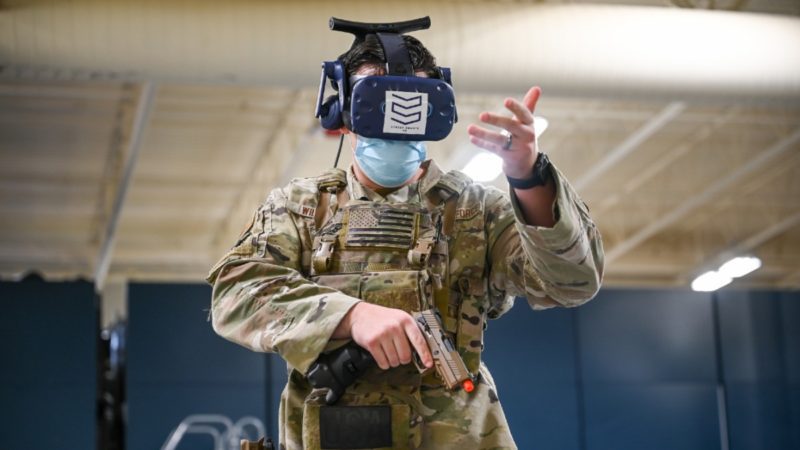Quick take:
- The US military is creating its own metaverse, virtual and augmented realities.
- Reports indicate that testing is already ongoing with personnel training together.
- AR and VR have been widely adopted in military training programs over the last few years.
The U.S. military has become the latest government unit to join the Web3 craze by creating its own metaverse with virtual and augmented realities. According to reports, the testing process saw two fighter pilots complete a high-altitude drill over the desert of California on May 10th.
The two pilots wore AR headsets to fly a pair of Berkut 540 jets. Among other skills they tried out was virtual refuelling aircraft in the sky, with one pilot practising the refuelling while the other observed.
The technologies used for AR and VR, head-mounted displays, and artificial intelligence (AI) powered environments are being developed by the US drone tech company Red 6. It allows pilots to participate in virtual dog fights against virtual enemy aircraft in a fully immersive 3D space.
The metaverse platform will allow pilots to simulate various battle scenarios in AR and VR using lower latency and high-reliability hardware.
Commenting on the program, Daniel Robinson, founder and CEO of Red likened the military metaverse to playing a video game in the sky. “What we’re building is really a military metaverse — It’s like a multiplayer video game in the sky.”
“We can fly against whatever threat we want — And that threat could be controlled either by an individual remotely or by artificial intelligence.”
While the metaverse training program may be deemed a relatively new concept in defence and warfare, AR and VR technologies have been around for a while, with various governments across the globe already using them to train their forces.
The metaverse allows the military to create more interconnected virtual systems by integrating different technologies.
Caitlin Dohrman, general manager of the defence division of Improbable, a company that develops virtual world technologies commented: “It is an extremely complex type of simulation, especially given the fidelity that the military demands. You can either have live players who are participating in the simulation or [participants] can be AI-enabled, which is often what the military does.”
Earlier this year, the UK was also reported to be running a similar program to train its army, while South Korea revealed a multi-pronged strategy to become a major player in the global metaverse market.
Stay up to date:





